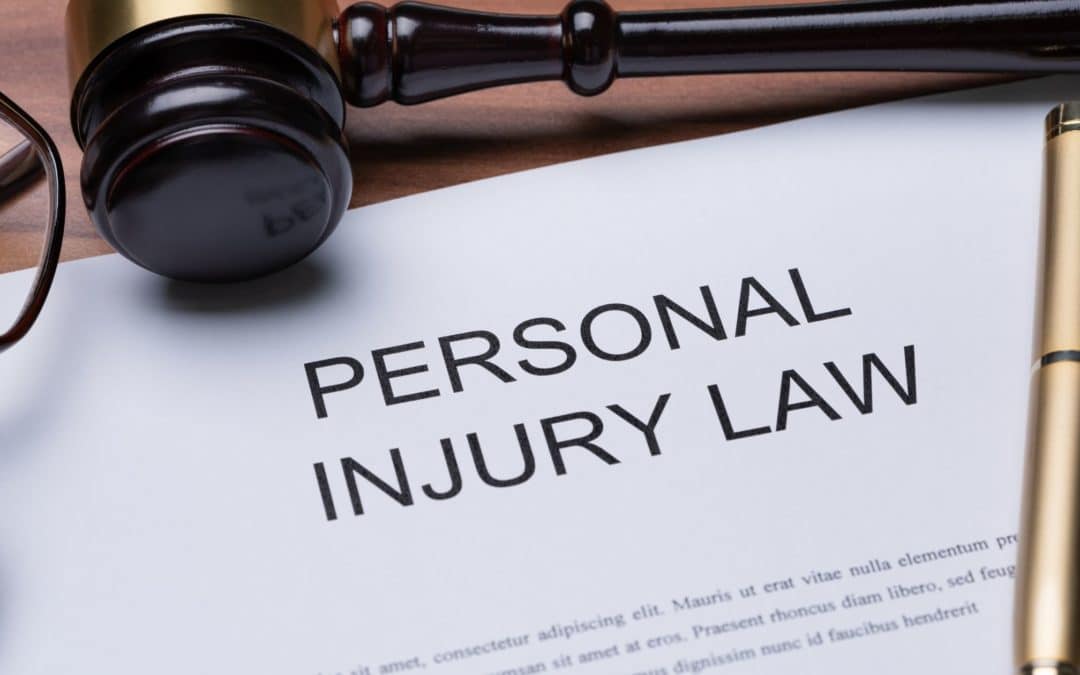The Biggest Personal Injury Decisions And Verdicts Of 2020
Record injury awards and major court rulings caught the attention of personal injury attorneys in 2020, including a U.S. Supreme Court decision barring civil damages in fatal cross-border shooting cases and lower courts’ resolution of suits involving questions of liability for social media-related injuries.
Here is a look back at some of the year’s top verdicts and decisions.
Fla. Jury Awards $412M in Zoom Trial Over Highway Crash
In October, a Florida state jury awarded $411.7 million in a damages-only Zoom jury trial over the case of a man who was severely injured when he was thrown from his motorcycle while trying to avoid a 45-car pileup.
The Gadsden County jury awarded the verdict to Duane Washington, who was riding his motorcycle in July 2018 when he encountered a large crash ahead of him, according to his lawyer. Washington tried to swerve into the emergency lane but hit a truck stopped there, was thrown from his bike, and suffered life-altering injuries.
Defendant Top Auto Express Inc., the operator of another truck that was accused of helping cause the pileup by speeding, does not appear to have participated in the trial or to have had counsel at the trial and did not put forth any witnesses or evidence, according to court records. The company had been hit with a default liability judgment in August after a judge said it “abandoned” its defense.
COVID demanded an unprecedented Zoom trial, but it didn’t stop the jury from hearing and understanding the evidence and returning a record verdict.
The jury awarded Washington approximately $410 million, with about $371 million earmarked for future pain and suffering. The jury also awarded each of Washington’s three sons $500,000 in damages.
High Court Bars Damages in Fatal Cross-Border Shooting
The U.S. Supreme Court ruled in February 2020 that the family of a Mexican teenager who was fatally shot by a U.S. Border Patrol agent across the U.S.-Mexico border can’t collect civil damages.
In a 5-4 decision, the justices said Jesus C. Hernandez, the father of the slain 15-year-old boy, can’t pursue civil damages under the 1971 Supreme Court ruling Bivens v. Six Unknown Named Agents , which allows people to collect monetary damages if their constitutional rights have been violated by a federal officer and no alternative legal remedy exists. Hernandez’s son was playing along the Mexican side of the border near El Paso, Texas when he was shot and killed by agent Jesus Mesa Jr.
Ex-NY Times Journalist Wins Case Over Seizure-Inducing Tweet
A man accused of sending a seizure-inducing tweet to former New York Times investigative journalist Kurt Eichenwald, who has epilepsy, agreed to pay $100,000 to end the case, according to documents filed in Maryland federal court.
U.S. District Judge James K. Bredar in September entered a final judgment in favor of Eichenwald and against John Rivello in a suit accusing the Maryland resident of sending an animated strobe image via Twitter that caused Eichenwald to suffer a severe seizure in late 2016.
Judge Bredar had previously determined that the light waves being emitted from the GIF image sent by Rivello constituted physical contact required to state a battery claim, as they were directed toward Eichenwald and related to his seizure. The September judgment pertained to all three claims in the suit: battery, assault and intentional infliction of emotional distress.
Verizon Pays Record $125M Settlement to Atty Paralyzed by Fallen Pole
Verizon New Jersey Inc. announced in May that it would pay $125 million to resolve claims by an attorney who was catastrophically injured after a rotted utility pole fell and hit her, in what her attorney said was the largest personal injury settlement awarded to an individual in the Garden State.
Maria Meister, now 50, was headed to her job as general counsel for Milberg Factors Inc. in January 2017 when the pole fell on her, leaving her with a traumatic brain injury and paralyzed in three limbs.
A mother of two who was an avid hiker, Meister is permanently disabled and will never work again. In addition to paralysis, Meister grapples with cognitive deficits due to a rare combination of a spinal injury and a brain injury.
Meister was previously an associate at Simpson Thacher & Bartlett LLP.
A Verizon spokesman expressed remorse for the incident.
Snapchat Preserves Win in ‘Speed Filter’ Injury Suit
The Georgia Court of Appeals in October effectively tossed a suit alleging that the “speed filter” feature on Snapchat Inc.’s photo app distracted a motorist and caused her to hit a man who suffered brain injuries, saying the company didn’t owe a duty of care to the man.
A three-judge panel affirmed the dismissal of a suit brought by Wentworth Maynard and his wife alleging that the social media company knew that the app’s speed filter — essentially a working speedometer superimposed over pictures taken by the user — would distract drivers and cause them to break traffic laws.
The suit claimed that the feature was negligently designed by Snapchat, encouraging users to endanger themselves and others, and prompted Christal McGee to drive more than 100 mph and collide with Maynard’s vehicle, resulting in his permanent brain damage.
The case is notable because Maynard was able to overcome an affirmative defense lodged by Snapchat asserting immunity under Section 230 of the Communications Decency Act, a federal law that shields website operators that publish third-party content, only to lose the case on the merits.
The panel held in October that under Georgia law, Snapchat had no general legal duty to protect others from harm caused by third parties such as McGee.
If you’re involved in an accident and need a personal injury attorney, contact Armour Law Group, Lake Nona personal injury attorneys.


Recent Comments